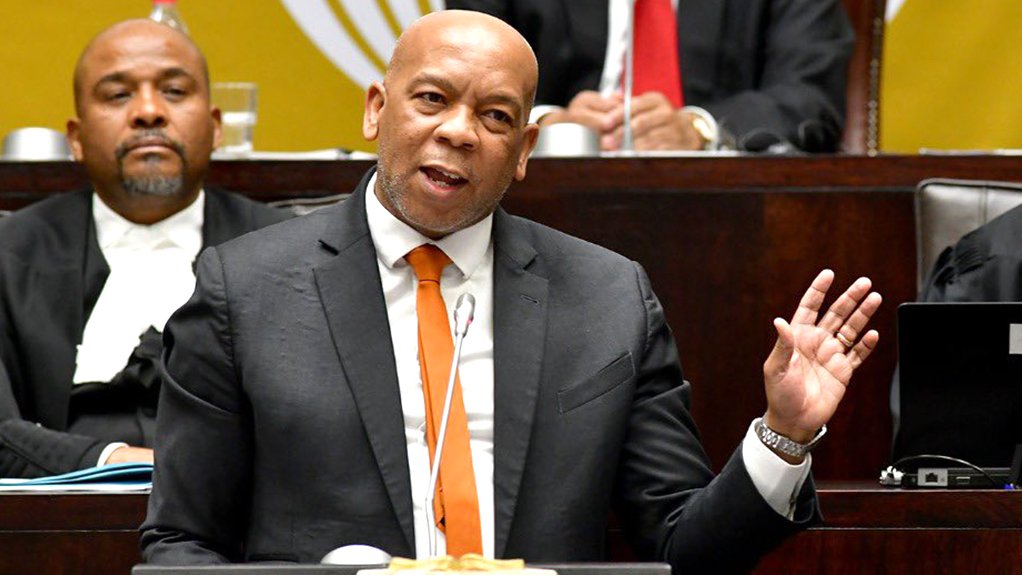Electricity and Energy Minister Dr Kgosientsho Ramokgopa has labelled a mooted increase in Eskom’s electricity tariff of 36% “untenable” and “unaffordable” and has promised to work on an outcome that seeks to strike a “delicate balance” between the needs of consumers and Eskom’s financial sustainability.
In his speech during a special Parliamentary debate, the Minister also reaffirmed the need to transition the Eskom tariff toward cost-reflectivity, highlighting the burden on taxpayers should the utility’s finances not be stabilised.
This tax burden was also highlighted by the Democratic Alliance’s Kevin Mileham, who led the debate for which his party had called.
He noted that Eskom had received about R242-billion over the last ten years, before the recent approval of a R254-billion debt-relief package under which the utility was currently trading.
Mileham also warned, however, that consumers would be left having to choose between electricity and food should Eskom receive the 36% hike for which it was currently applying, given that electricity tariffs had already surged by a nominal 945% over the past 17 years.
The increase would be made even more unaffordable, he added should the National Energy Regulator of South Africa (Nersa) immediately implement an R8-billion claw-back awarded in favour of Eskom in line with a regulatory clearing account application for the 2021/22 financial year.
Should the full amount be implemented on April 1 next year, it would add 4% to the overall tariff increase.
In his response to the debate, Ramokgopa said the issue of Eskom’s tariff hike needed to be addressed with urgency and compassion, and expressed optimism that a solution could be found that balanced Eskom’s financial sustainability and protected vulnerable communities.
“I'm talking about that delicate balance of ensuring the sustainability of Eskom that is needed for us to allow the economy to grow, [while cushioning] the poor and the middle-income earners in this country, so that we don't erode their disposable income.”
While indicating that he would be requesting Nersa to delay and phase-in the R8-billion claw-back, he also announced the following interventions:
- A review by the South African National Energy Research Institute of the current monthly free basic electricity allowance of 50 kWh for indigent households with the aim of increasing the benefits and ensuring that the benefits reach all ten-million eligible households rather than the current two-million;
- A repurposing of the Integrated National Electrification Programme, which received R5-billion yearly, to increase its penetration through the use of alternative technologies, with a PV-battery-inverter pilot project to be launched before the end of November; and
- Continuing to find a solution to the growing problem of Eskom’s municipal arrear debt, which stood at close to R80-billion, alongside efforts to improve the capacity of municipalities to bill and collect electricity revenue.
He also underlined the need for Eskom to improve its efficiencies and contain its primary energy costs, but stressed that cost savings alone would not be sufficient to ensure its long-term sustainability.
“Financial sustainability requires improved operating cash flows and a shift towards cost-reflective tariffs.
“Without this, Eskom will remain dependent on government support, placing an ongoing burden on taxpayers,” he said.
Ramokgopa also stressed that Nersa would ensure full public participation when deliberating on Eskom’s revenue application in December, and promised that government would be taking steps in parallel to find solutions to cushion consumers.
“These increases are untenable, are unaffordable, and the country can least afford this situation.
“We will do everything possible to address this. That's the assurance I'm giving to the South African people.”
EMAIL THIS ARTICLE SAVE THIS ARTICLE ARTICLE ENQUIRY
To subscribe email subscriptions@creamermedia.co.za or click here
To advertise email advertising@creamermedia.co.za or click here











